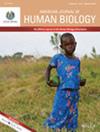Association Between Motor Competence, Executive Functions, and Self-Regulation: A Complex Systems Approach
Abstract
Background
There are several associated factors that have an impact on a child's development, including the cognitive and motor domains. Motor competence is intrinsically linked to executive functioning, even though the causal links between the development of motor skills and the development of cognitive skills are not always obvious. Even in early childhood, with advances in cognitive processes in the child's development, processes emerge that make the child capable of regulating their own behavior.
Objectives
These variables are important for child development; however, there are no previous studies that examine the associations of motor competence, executive functions, and self-regulation together. There is also no study that takes a holistic view to better understand the interrelationships of these variables. This study aimed to investigate the association between motor competence, executive functions, and self-regulation in childhood and identify the variables with the highest network influence values.
Methods
The research adopted a cross-sectional design; it is a descriptive and associative study. Two hundred and eighty-three children aged 3–6 years of both sexes, from two of the most populous cities in the interior of northeastern Brazil participated. The instruments used were the TGMD-3 for motor competence, the Early Years Toolbox battery for executive functions, and HTKS-R for self-regulation. The data was analyzed using network analysis.
Results
It was observed that motor competence and executive functions were positively related, and self-regulation had an indirect association with motor competence. These findings corroborate previous studies on the relationship between motor competence and executive functions and highlight the importance of self-regulation in this association. The network showed clusters between motor competence skills, executive functions, and self-regulation, which are part of the same construct. The skills of running, receiving, kicking, and inhibitory control had the highest centrality rates, highlighting their importance for the interconnection of variables. The highest values of expected influence were from running, inhibitory control, and kicking, modifications of which can result in significant changes in the overall behavior of the network.
Conclusions
These findings reinforce the integrated nature of motor, cognitive, and self-regulatory processes in childhood, suggesting that specific skills (e.g., running, inhibitory control) play a central role in the development network.

 求助内容:
求助内容: 应助结果提醒方式:
应助结果提醒方式:


